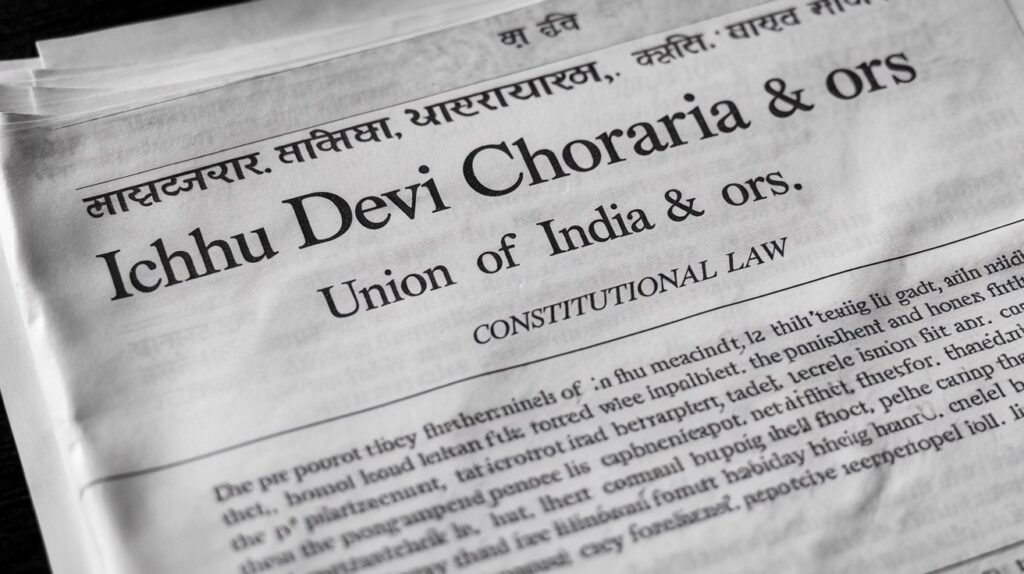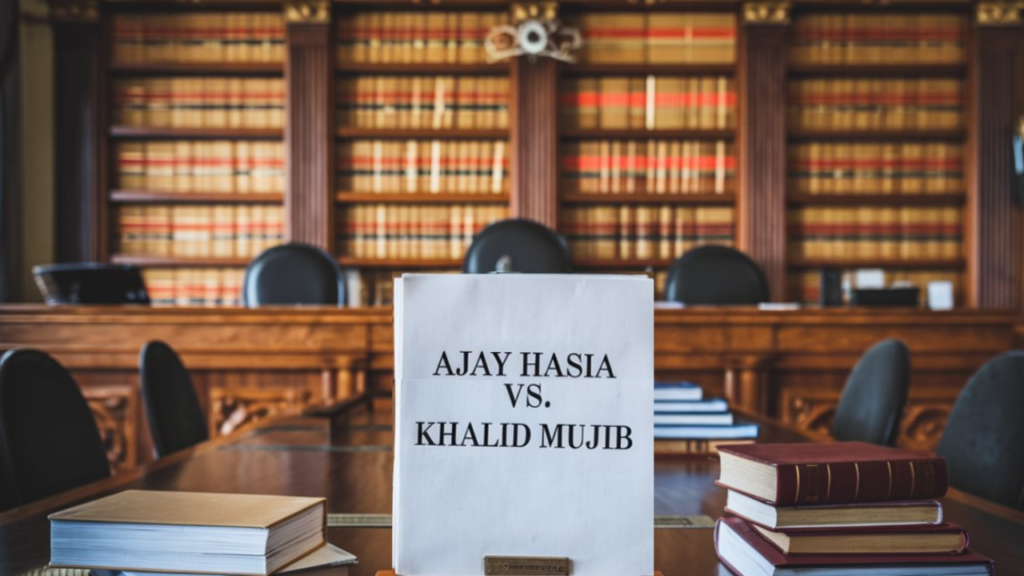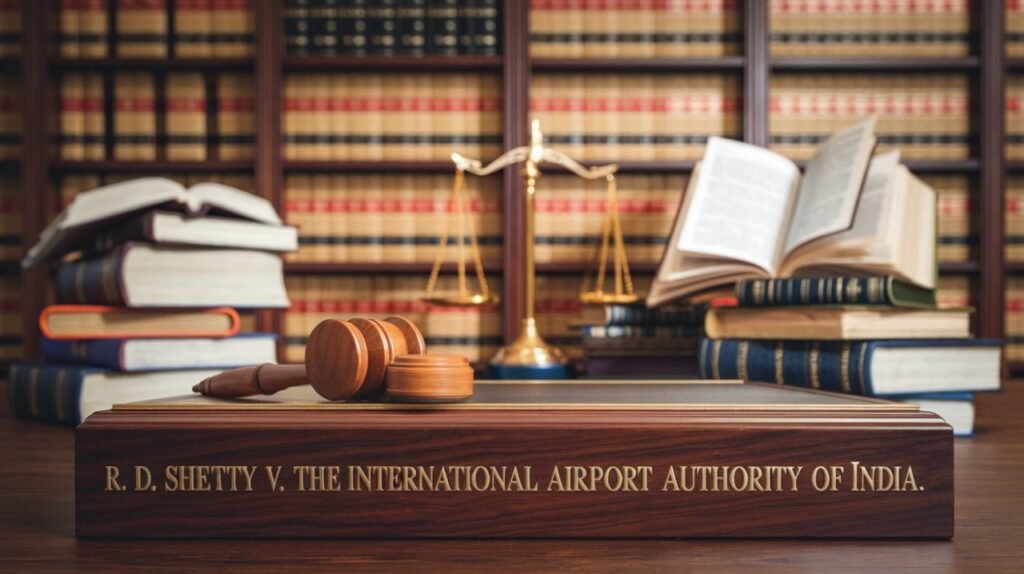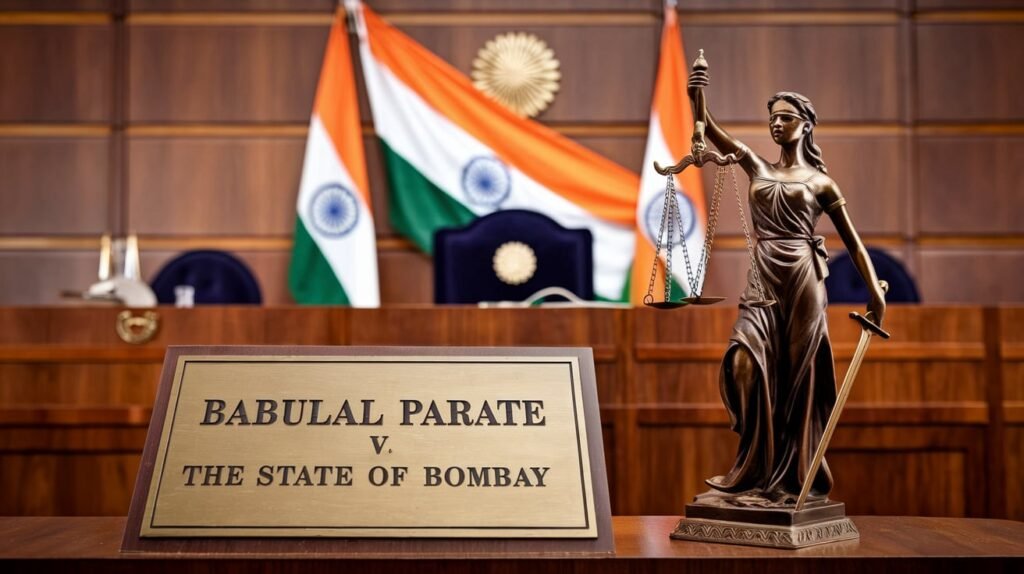Ajay Hasia Vs. Khalid Mujib Sehravardi & Ors (Case Summary)
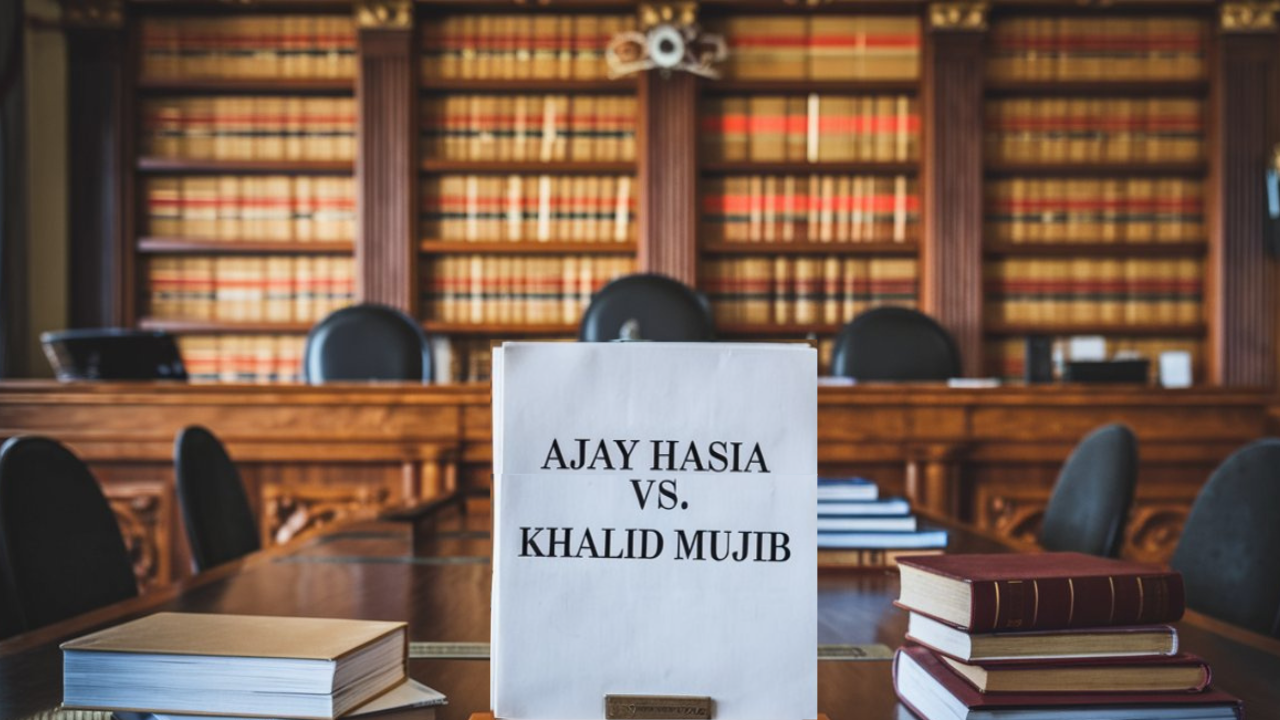
In this landmark ruling, the Hon’ble Supreme Court of India broadened the definition of “State” under Article 12 of the Constitution, holding that societies, corporates or other entities heavily controlled by the government are considered instrumentalities of the State, thus subject to constitutional obligations. The court established tests to determine whether such an entity can be considered other authorities under the definition of state under Article 12.
Table of Contents
ToggleFacts of Ajay Hasia Vs. Khalid Mujib
- The Regional Engineering College, Srinagar was registered as a society under the Jammu & Kashmir Registration of Societies Act, 1898.
- In 1979, the college invited applications for B.E. course admissions for the 1979-80 academic year.
- The petitioners applied, took a written test, and appeared for a viva voce interview conducted by a committee.
- The petitioners contend that their interviews lasted only 2 to 3 minutes on average, during which they were asked superficial questions about parentage and residence, with few relevant questions concerning the factors for which marks were allocated.
- Upon the announcement of admissions, they discovered that despite scoring well in the qualifying examination, they were denied admission due to low marks in the viva voce.
- Meanwhile, candidates with lower marks in the qualifying and written tests secured admission due to disproportionately high marks in the viva voce.
- Challenging the admissions, the petitioners filed a writ petition under Article 32 of the Constitution.
Issues framed
- Whether the society managing the Regional Engineering College, Srinagar, could be considered an “instrumentality” or “agency” of the State under Article 12 of the Indian Constitution, hence is it maintainable or not?
- Whether the denial of admission to the petitioners based on a non-transparent and arbitrary viva voce process amounts to a violation of the fundamental right to equality under Article 14 of the Indian Constitution?
Judgment of Ajay Hasia Vs. Khalid Mujib
The Court’s analysis focused on interpreting Article 12 of the Constitution, which defines “State” to include various entities such as the government and its instrumentalities. The key question was whether a society, created or governed by statute, could be classified as a “State” under this article. The Court applied the principles established in the case of R.D. Shetty v. International Airport Authority of India, which outlined the factors to determine if a body qualifies as an “instrumentality” of the State.
Relevant Factors from the International Airport Authority Case: To classify a corporation or entity as a “State” under Article 12, the following factors were considered:
- Whether the Government Owns the Entire Share Capital: If the entire share capital is held by the government, it indicates the corporation is an instrumentality or agency of the government.
- Whether the Financial Assistance from the State is Substantial: If state financial assistance covers almost the entire expenditure, it suggests the corporation has a governmental character.
- Whether the Corporation Enjoys Monopoly Status: If the corporation enjoys monopoly status conferred or protected by the state, it may indicate it is an instrumentality or agency of the government.
- Whether There is Deep and Pervasive State Control: The existence of deep and pervasive state control indicates the corporation is a state agency or instrumentality.
- Whether the Functions are of Public Importance: If the corporation’s functions are of public importance and closely related to governmental functions, it supports classification as an instrumentality or agency of the government.
- Whether a Government Department has been Transferred: If a government department is transferred to a corporation, it strongly supports the inference that the corporation is an instrumentality or agency of the government.
The Court determined that a society, even if created under statute, can be considered a “State” under Article 12 if it meets the criteria established for classifying a corporation as an “authority” within the meaning of Article 12. The Court found that the society managing the Regional Engineering College met the established criteria based on the following findings:
- Government-Dominated Composition: The Society managing the college was primarily composed of representatives appointed by the Central Government and the Governments of Jammu & Kashmir, Punjab, Rajasthan, and Uttar Pradesh, subject to the approval of the Central Government. This governmental representation in the composition of the Society indicates substantial state control.
- Complete Financial Dependency: The entire funding necessary for the operation of the college was provided by the Central Government and the Government of Jammu & Kashmir. Furthermore, the Society could not receive any other funds without the prior approval of both the State and Central Governments, thus demonstrating significant financial control by the government.
- Approval of Rules and Finances: The Society was required to obtain the prior approval of both the State and Central Governments for the formulation of its rules. Additionally, the accounts of the Society were subject to scrutiny and approval by both governments, further evidencing their overarching control over its operations.
- Deep and Pervasive Government Control: The Society was obliged to comply with all directions issued by the State Government, provided they were approved by the Central Government. The disposal of immovable property by the Society could not occur without the approval of both the State and Central Governments. The State Government, with the approval of the Central Government, also retained the authority to appoint or remove members of the Society, except for those representing the State or Central Government.
- Control over the Board of Governors: The Board of Governors, which exercised general superintendence, direction, and control over the affairs of the Society, including its income and property, was largely controlled by individuals nominated by the State and Central Governments. This level of control over the highest decision-making body of the Society further demonstrated the pervasive nature of state involvement.
Final Judgment: The Hon’ble Supreme Court dismissed the writ petitions challenging the admissions for the 1979-80 academic session at the Regional Engineering College, Srinagar, observing that while the selection process was deemed arbitrary and unreasonable, nullifying the admissions would cause serious disruption to students who had already completed nearly three semesters. The Court further noted that even if the petitioners were ultimately found entitled to admission, restoration to the 1979-80 academic year, which had long since lapsed, would not be feasible.
The Court also concluded that the degree of control exercised by the Central and State Governments over the Society managing the Regional Engineering College was so extensive that the Society operated as an extension or agency of the State. Accordingly, the Society was held to be an “authority” within the meaning of Article 12 of the Indian Constitution, making it subject to constitutional obligations, particularly those under Article 14, which mandates equality before the law and prohibits arbitrary actions. The court further observed that the factors for the test of instrumentality are illustrative and not conclusive.


